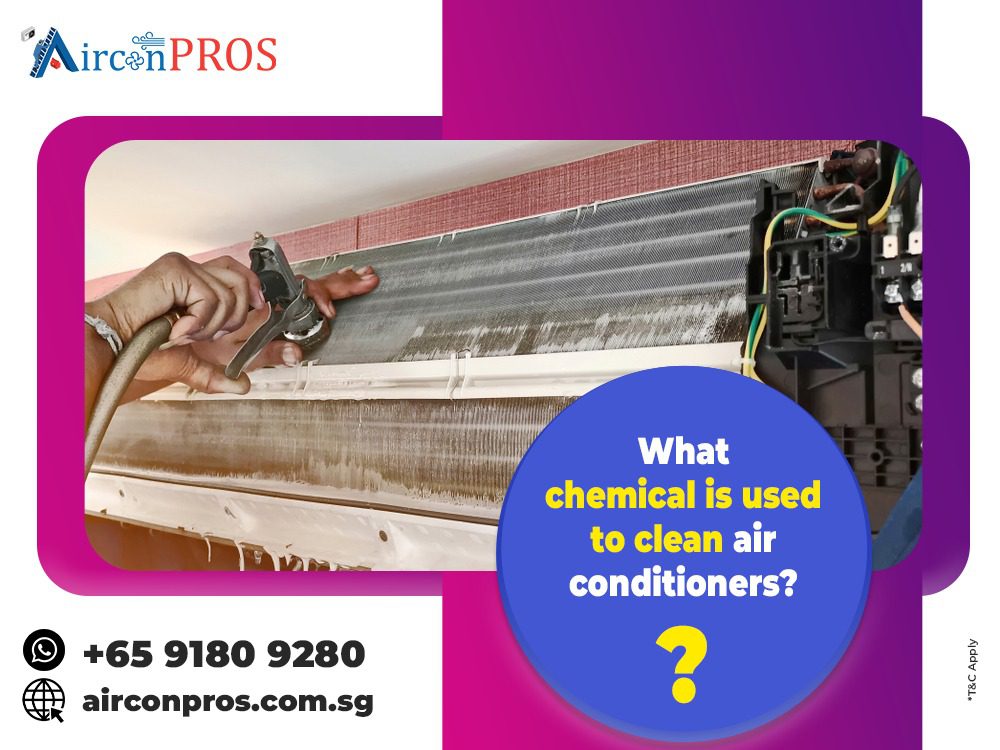
Aircon Chemical cleaning
Explanation of the importance of cleaning air conditioners for maintaining efficiency and indoor air quality. Introduction to the various Aircon chemical cleaning agents used in the process. Promise to provide insights into the types of chemicals, their functions, and safety considerations.
1. Coil Cleaners:
Explanation of coil cleaners used to remove dirt, debris, and microbial growth from evaporator and condenser coils. Discussion of alkaline-based coil cleaners for heavy-duty cleaning of grease and grime. Introduction to foaming coil cleaners for enhanced penetration and cleaning effectiveness. Mention of biodegradable coil cleaners for environmentally friendly options.
2. Disinfectants and Sanitizers:
Introduction to disinfectants and sanitizers used to kill bacteria, viruses, and fungi in air conditioning systems. Description of chemical disinfectants like quaternary ammonium compounds (quats) and chlorine-based agents. Explanation of non-chemical sanitizing methods such as UV-C germicidal lamps. Discuss the importance of sanitizing air conditioners, especially in healthcare facilities and commercial kitchens.
3. Degreasers and Detergents:
Overview of degreasers and detergents used to remove oil, grease, and other stubborn residues from air conditioner components. Explanation of solvent-based degreasers for effective removal of heavy oil buildup. Introduction to alkaline detergents for general-purpose cleaning of coils and surfaces. Discussion of environmentally friendly degreasers and detergents with low VOC (volatile organic compound) content.
4. Mold and Mildew Removers:
Explanation of mold and mildew removers used to eliminate fungal growth in air conditioning systems. Introduction to chemical fungicides and biocides for killing mold spores and preventing regrowth. Description of enzymatic cleaners for breaking down organic matter and eliminating odors associated with mold and mildew. Mention DIY solutions like vinegar and hydrogen peroxide for mild mold infestations.
5. Rust Inhibitors and Corrosion Protectors:
Overview of rust inhibitors and corrosion protectors used to prevent corrosion on metal surfaces in air conditioners. Explanation of chemical coatings and sealants applied to coils, fins, and other exposed components. Discuss the importance of corrosion prevention for extending the lifespan of air conditioning equipment. Mention environmentally safe rust inhibitors free from harmful chemicals like phosphates and nitrates.
Safety Considerations:
Importance of following safety guidelines and using personal protective equipment (PPE) when handling chemicals. Discussion of potential health hazards associated with chemical exposure, including skin irritation and respiratory problems. Explanation of proper ventilation and disposal procedures for used chemicals and cleaning solutions. Recommendation to consult MSDS (Material Safety Data Sheets) for detailed information on chemical hazards and handling instructions.
Conclusion:
Recap of the various chemicals used for cleaning air conditioners and their specific functions. Emphasis on the importance of safety precautions and responsible chemical handling practices. Encouragement for professional maintenance services or DIY enthusiasts to use appropriate chemicals for effective cleaning and maintenance.

